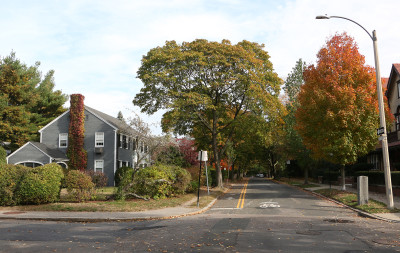
Boston Mayor Martin Walsh announced Monday the creation of the Mayor’s Housing Innovation Lab, which aims to bring innovative thinking to help solve Boston’s middle income housing challenges.
With creation of the lab, Walsh hopes that Boston will be the first city in the nation to solve middle income housing challenges, according to a Monday press release.
“Maintaining a strong middle class is critical to ensuring that Boston continues to be a thriving, diverse city where people want to live and employers want to locate,” Walsh said in the release. “Having Susan [Nguyen] and Marcy [Ostberg] in place to lead the i-team will help ensure that Boston remains a city that is affordable to people at all economic levels.”
Bloomberg Philanthropies announced in December 2014 that it would provide grants to 12 cities in the United States to set up “i-teams” to bring new approaches to difficult issues, according to the release.
Ostberg, one of the co-managers of the Innovation Lab, said the Department of Neighborhood Development and Department of New Urban Mechanics partnered together to write the grant application.
“The idea itself came out of the 2030 housing plan,” Ostberg said.
Boston’s workforce is expected to grow by 26,600 households between 2010 and 2030, creating a need for new housing, according to the release.
“There will be a need for 53,000 more units of housing, especially in the middle income housing range,” Ostberg said. “We’re finding out that there’s not a lot of affordable housing options for this group of people. Our work is actually trying to figure out what creative solutions can help meet the needs of that population.”
There is a gap created between the housing the City helps provide for lower income families and the luxurious housing that the market is building out of demand, Ostberg said.
“Right now the market itself isn’t building these middle income units because the market is building these luxury units and the city is working on affordable units and they are focusing on lower income units,” Ostberg said. “There is a big gap of available middle income units between where the city comes in and where those luxury units start.”
Because the Innovation Lab is still in its early stages, Ostberg said it is still trying to narrow down ideas on how to make a program meet Boston’s needs. Various cities like San Francisco have developed similar programs, she said.
“The process of innovation is beginning with a lot of ideas and then paring them down and some might fall off and not work, but that’s OK,” Ostberg said. “We are beginning by exploring the problem further and generating ideas about what could solve the problem.”
Ostberg said providing incentives to developers is among the ideas the lab is considering.
“The first idea is density bonus, so this is assuming there’s a max height or density that a lot of buildings have,” Ostberg said. “[We say] to a developer that you can only build four stories, but if you want to build two more stories you can, if you build extra units of affordable housing. Developers seem very excited about it.”
Several residents expressed relief that Boston is trying to solve a problem for a group that has largely fallen through the cracks.
Michael Paduck, 47, of Back Bay, felt that the City should be attempting to fix such an issue.
“Everybody needs housing and if there is no availability for middle income families then they can’t just be left without any place to live,” Paduck said. “Boston is a big city and we should have more housing available for those who are in the middle.”
Lynn Jones, 66, of Brighton, commented on the difficulty in finding affordable housing in Boston.
“Boston is an expensive city and there are plenty of things that require money,” Jones said. “If you’re a middle income household, between bills and everything else, it’s hard to find good, affordable housing.”
Martin Lable, 35, of Back Bay, said how easy it is to be wrapped up in how expensive housing.
“Boston housing is incredibly expensive, I mean it is a big city,” Lable said. “It’s good that they’re trying to make sure everyone has viable housing options, regardless of income.




















































































































